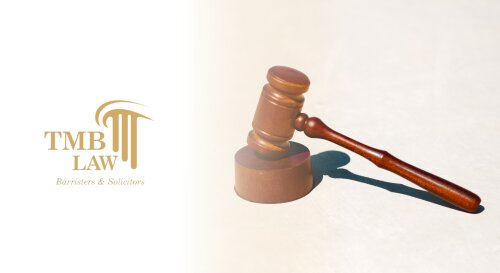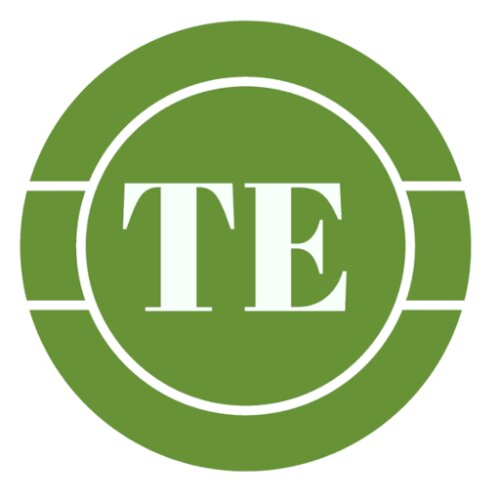Best Private Client Lawyers in Oshawa
Share your needs with us, get contacted by law firms.
Free. Takes 2 min.
List of the best lawyers in Oshawa, Canada
About Private Client Law in Oshawa, Canada
Private client law focuses on providing legal services to individuals and families regarding their personal wealth, property, and legacy planning needs. In Oshawa, private client lawyers assist with a range of matters such as estate planning, drafting wills and powers of attorney, managing trusts, administering estates after death, resolving estate disputes, and helping with tax planning. The aim is to ensure that your wishes are respected, your assets are managed and transferred efficiently, and your loved ones are protected following your passing or incapacity.
Why You May Need a Lawyer
Seeking legal help in private client matters is common for various reasons. You might need a lawyer when you want to draft or update a will, set up a trust, designate a power of attorney, administer an estate, or contest a will. Legal guidance is especially important if your family circumstances are complex, if you have significant assets, or if you wish to minimize taxes and future disputes. Lawyers ensure your documents are legally valid and tailored to your individual needs while complying with local laws.
Local Laws Overview
Oshawa, located in Ontario, applies provincial laws to private client matters. Key laws include the Succession Law Reform Act governing wills and inheritance, the Estates Act covering estate administration, and the Substitute Decisions Act for powers of attorney and guardianship. These laws set out requirements for legal documents, rules for distributing estates with or without a will, and procedures for dispute resolution. Ontario also recognizes both testamentary and inter vivos trusts, with succession taxes (probate fees) applying to certain estate assets. Local courts in Durham Region oversee estate disputes and probate matters.
Frequently Asked Questions
What is a will and why is it important?
A will is a legal document that specifies how your assets will be distributed after your death and can appoint guardians for your minor children. Having a valid will helps avoid confusion, delays, and family disputes.
What happens if I die without a will in Oshawa?
If you pass away without a will, your assets will be distributed according to Ontario’s intestacy laws. The court will appoint an estate trustee, and your property will go to family members in a set order that may not reflect your wishes.
How often should I update my will?
You should review and update your will whenever you experience significant life changes, such as marriage, divorce, the birth or adoption of children, acquiring or selling property, or if your chosen executors or beneficiaries change.
What is probate and when is it required?
Probate is a court process confirming that a will is valid and authorizing the executor to administer the estate. Probate is usually needed when the estate includes real estate or significant financial assets that institutions require court approval to release.
Can I handle estate administration myself?
While it is possible for an executor to manage simple estates alone, legal help is recommended due to complex rules, potential tax consequences, and the risk of personal liability if mistakes are made.
What is a power of attorney?
A power of attorney is a legal document allowing someone you trust to make decisions on your behalf if you become incapacitated. In Ontario, there are separate powers of attorney for property and for personal care.
Are there taxes on inheritance in Oshawa?
Ontario does not levy an inheritance tax, but estates must pay estate administration tax (probate fees) based on the value of the estate, as well as any income or capital gains taxes owed by the deceased before assets are distributed.
How can trusts be used in estate planning?
Trusts are legal arrangements allowing a third party (the trustee) to hold and manage assets for beneficiaries. Trusts can help minimize taxes, provide for minors or disabled dependents, and protect assets from creditors or relationship breakdowns.
What should I do if I believe a will is unfair or invalid?
If you suspect a will is invalid due to undue influence, lack of capacity, or improper execution, or if you believe you were wrongly excluded, you have the right to challenge the will in court. Consult a private client lawyer to review your case.
How much does it cost to hire a private client lawyer?
Legal costs vary depending on the complexity of your case and the services required. Many private client lawyers offer flat fees for basic wills and powers of attorney, while estate disputes or complex planning may be charged at an hourly rate. Always ask for a clear fee structure during your initial consultation.
Additional Resources
- Ontario Ministry of the Attorney General - Estate administration, probate, and wills information - Durham Region Law Association - Local lawyer referrals and legal information - Ontario Bar Association - Public resources on wills, estates, and powers of attorney - Community Legal Clinics in Durham Region - Free or low-cost legal advice for those who qualify - Office of the Public Guardian and Trustee (Ontario) - Guidance on powers of attorney and guardianship
Next Steps
If you require legal assistance with private client matters in Oshawa, begin by gathering relevant documents such as existing wills, property deeds, and financial information. Consider your goals and any family or personal circumstances that may affect your planning. Contact a licensed Ontario lawyer who specializes in wills, estates, and trusts to schedule a consultation. During the meeting, discuss your needs, request a clear fee estimate, and ensure you fully understand your options. Acting sooner rather than later will help protect your interests and provide peace of mind for you and your loved ones.
Lawzana helps you find the best lawyers and law firms in Oshawa through a curated and pre-screened list of qualified legal professionals. Our platform offers rankings and detailed profiles of attorneys and law firms, allowing you to compare based on practice areas, including Private Client, experience, and client feedback.
Each profile includes a description of the firm's areas of practice, client reviews, team members and partners, year of establishment, spoken languages, office locations, contact information, social media presence, and any published articles or resources. Most firms on our platform speak English and are experienced in both local and international legal matters.
Get a quote from top-rated law firms in Oshawa, Canada — quickly, securely, and without unnecessary hassle.
Disclaimer:
The information provided on this page is for general informational purposes only and does not constitute legal advice. While we strive to ensure the accuracy and relevance of the content, legal information may change over time, and interpretations of the law can vary. You should always consult with a qualified legal professional for advice specific to your situation.
We disclaim all liability for actions taken or not taken based on the content of this page. If you believe any information is incorrect or outdated, please contact us, and we will review and update it where appropriate.
Browse private client law firms by service in Oshawa, Canada
Oshawa, Canada Attorneys in related practice areas.









